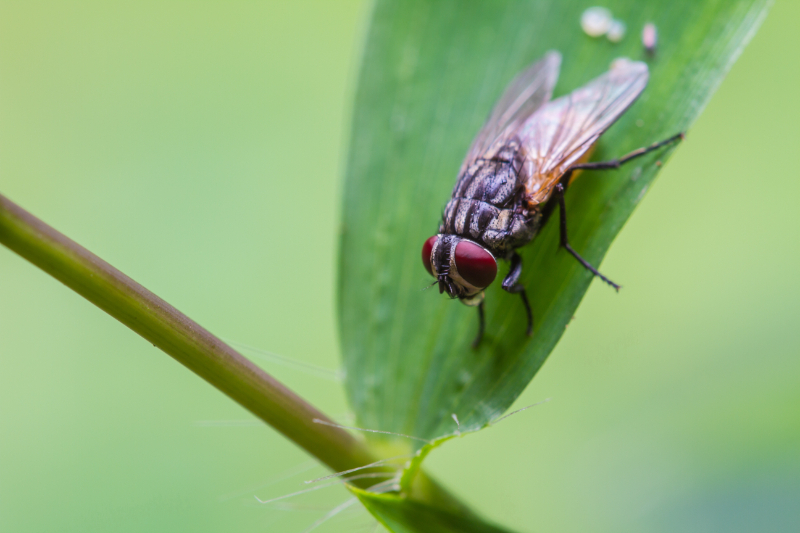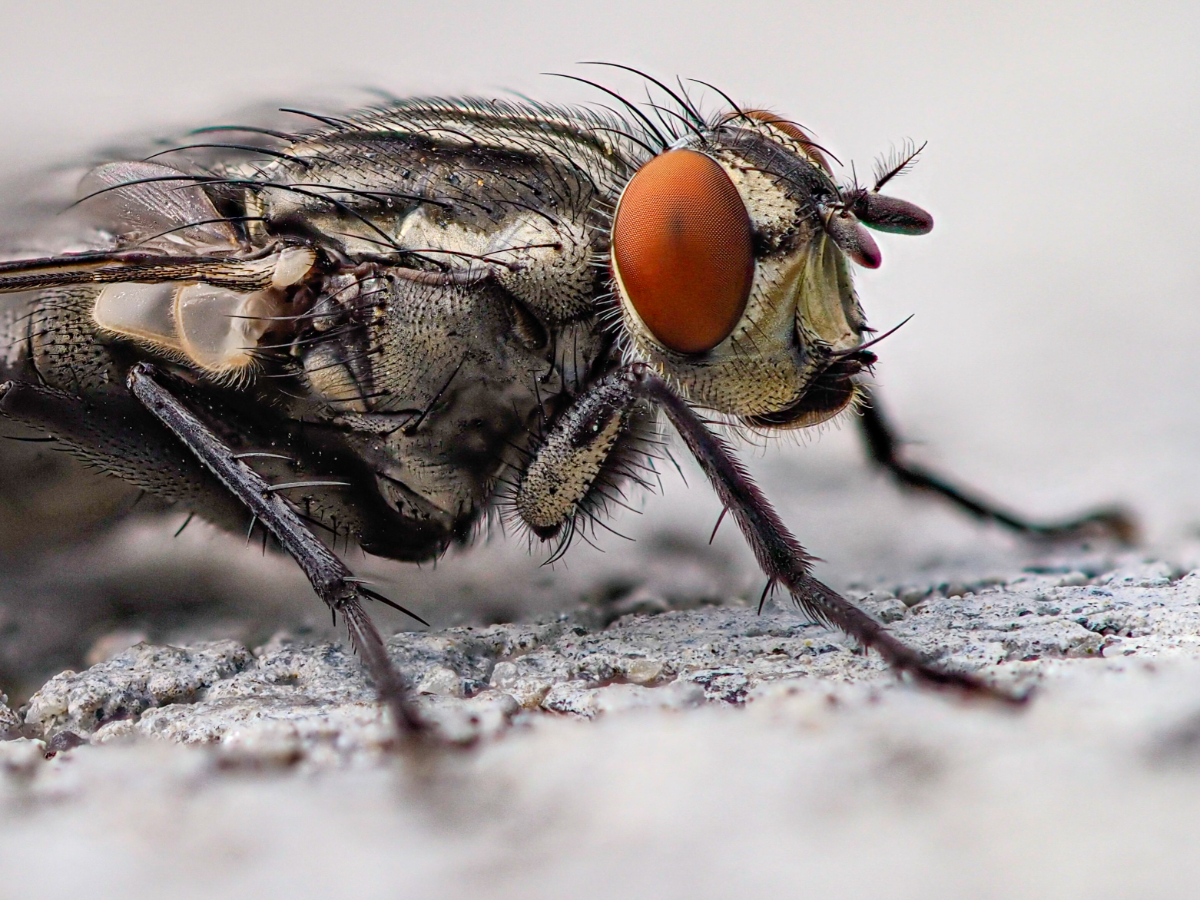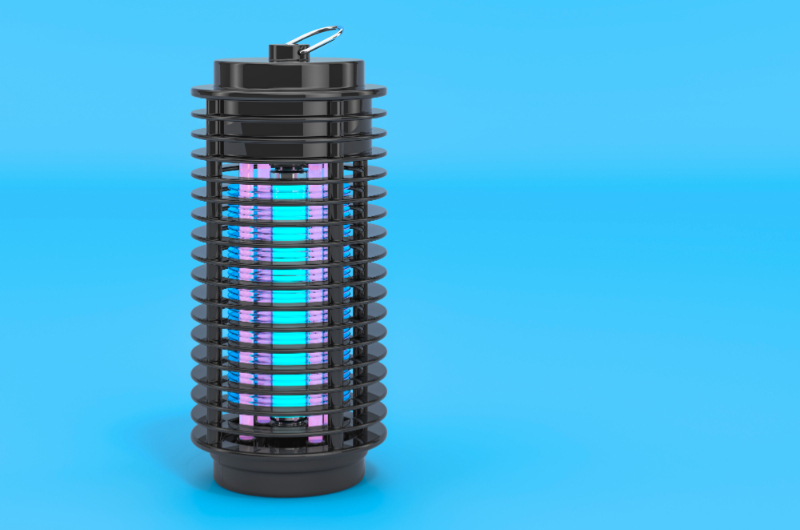Do you need to find out: how do you prevent cluster flies? We look at what causes cluster flies in the house and the risks of a fly infestation. Find out how you can prevent a fly problem. No one wants cluster flies invading their home, nor any pest. There's normally no stopping them from getting into your home, but there are some small steps you can put into place to help control the cluster fly population.
What Causes Cluster Flies in the House?
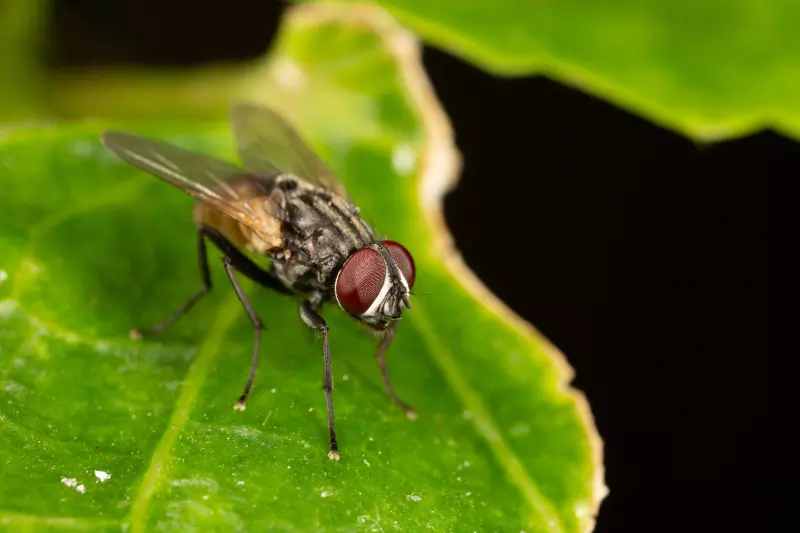
As the Winter months get colder, cluster flies (and many other pests for that matter) take refuge in our homes, especially as the central heating is used more. Our homes provide protection against the elements and can give pests such as cluster flies all the warmth and nutrients they need to thrive.
Typically, cluster flies won't emerge until Springtime but they need to survive over winter by hibernating.
Unlike other types of fly, they aren't attracted to food waste and rubbish bags as much, as will instead be attracted to the warmth of your home, especially quieter areas like loft spaces. Since the heat rises, cluster flies will commonly nest and lay their eggs in loft spaces.
Due to this, you will see an increase in cluster flies from September onwards and may find yourself dealing with them annually around the same time.
Are Cluster Flies Dangerous?
Cluster flies are different from other fly species, as they don't spread as much disease and aren't a direct threat to humans. Bluebottle flies and the common housefly can spread diseases much easier (such as E-coli) as they're attracted to food waste and their excrement can get around such areas.
Cluster flies will still leave faeces and excrement around your home, and you will begin to notice an odour, which can spread illness is left to get severe.
They don't lay their eggs in food either, which is a common risk with fly species. That's not to say that cluster flies offer no risk to you and your home, as they can gather and breed in large numbers.
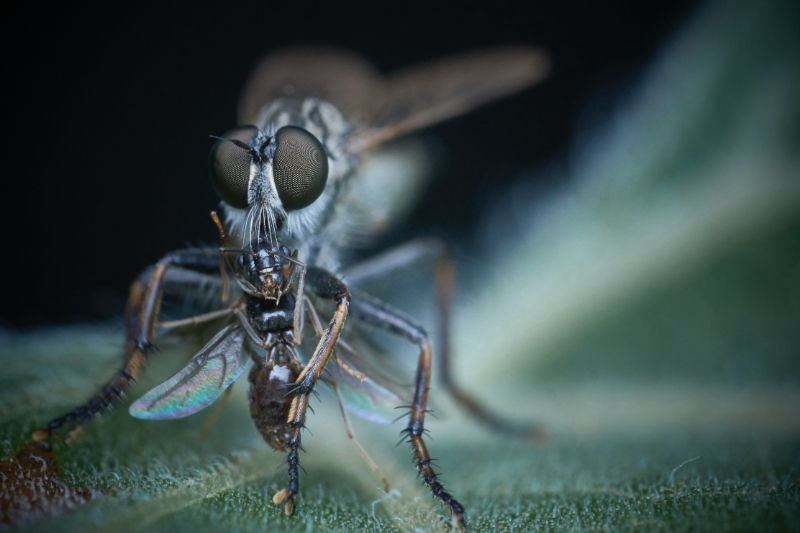
They are larger than common houseflies, measuring around 8-10mm, and will cluster into large groups. If they are allowed to gather in areas such as your loft, then these numbers can get large and become harder to deal with.
This is why it's important to report any signs of a fly infestation you notice, as a pest control expert will have the tools and knowledge you need to deal with the issue.
What Are The Risks of a Fly Infestation?

Don't take cluster flies lightly, because they can still be a huge health risk and extremely disturbing. They can cluster in groups of thousands at a time, and easily breed once they've nested.
Every year, if you're regularly suffering from cluster flies, you can expect to have 3-4 generations within your home.
They may not lay eggs in your home, as they prefer to do this in the soil in the Spring, but they can hatch larvae in 3-4 days of laying eggs.
This can quickly lead to a large number of cluster flies in your home. The stench of their excrement can quickly get overbearing and can leave stains on your walls, floors, and furniture. Crushing the odd cluster fly you see either won't do the case, as they can further stain.
Controlling Cluster Flies
There are a few controlled methods you can use to deal with cluster fly populations within your home. Most of these methods are good for dealing with the current infestation and have high kill rates, but will not provide longevity to the ongoing cluster fly problem. For that, you must be regularly maintaining these practices, perhaps every year.
Here are some ways you can control cluster flies in your home:
Aerosol Dispenser
One of the most common means of controlling cluster flies is the installation of an aerosol dispenser, that automatically sprays cluster fly killer. This can be set to automatically activate and can be adjusted to best fit the size of your loft space and the size of the infestation.
This is good for regularly spraying the room with a killer, and could be used in preparation for those months where cluster flies are more likely to enter the house.
Electric Fly Killer
Another common treatment is some form of electric fly killer, as you are able to get a model specifically designed for killing cluster flies.
These sorts of models are ideal for this situation, as you are able to catch the cluster flies in an enclosed tray, meaning disposing of the dead flies is easier than ever.
You don't want dead flies lying around, especially in the loft, as they will add to the odour and could potentially attract other pests into your home. You should be careful what type of electric fly killer you use, however, and get a professional opinion, as standard electric devices can be a fire hazard, especially when used in a loft.
Power Fogger/Midi Bombs
However, one of the most effective means of dealing with cluster flies is Power Foggers or Pro-Active Midi Bombs.
These type of smoke bombs are designed to cover large areas, so can cover your entire loft in one treatment. They are extremely effective at killing cluster flies in the home and can be administered DIY or by a pest control expert.
It's recommended that you get a professional to administer the smoke bomb, as you are dealing with strong chemicals and the fumes can prove deadly to humans if inhaled. This must be done in a ventilated area, and multiple treatments may be needed.
How to Prevent Cluster Flies in Your Home
Despite all of these methods, you may still find yourself with cluster flies in your home. They are good at getting in, and the warmth of your property makes it an ideal location for flies.
However, there are some good preventative measures that you can start practicing to help keep cluster flies (and other fly species) out of your house:
Doors and Windows
Ensuring that your doors, windows, and window frames are in good health is important, as any small crack gives these tiny insects a chance to enter your home. This is why you will find a larger number and more regular pests in older homes, ones that are beginning to fall apart.
Insect Killer
If you are able to invest in a plant-based flying insect killer then you will notice a decrease in fly populations generally. These should be used throughout Spring and Summer when the flies will be at their peak and can help prevent larger numbers in the Winter.
Sealing Cracks
You should begin to seal up any cracks and crevices around the house, both inside and outside. Any cable or plumbing pipe penetration points must be inspected and evaluated, as there will more than likely be holes in that area that could let pests in. They will tend to hibernate and hide within wall voids, so if you begin to hear noise, then it's worth getting in touch.
How To Get Rid of Cluster Flies in The House
Hopefully, all of these tips have given you some more insight into what cluster flies are and how you can best stop them from entering your home.
Once they're inside, you should prioritise killing them and stopping them from breeding, but otherwise, your main goal should be to prevent them from getting access, not trying to kill those you do see.
Although cluster flies aren't attracted to food waste and rubbish, there's no guarantee they won't enter your home because of these factors. Be sure to keep food preparation areas clean and tidy, and to keep all doors and windows shut where possible.
They are attracted to warmth and sunny places, hence why you may spot flies gathering around windows. This is why it's important to keep your windows shut, and perhaps close the curtains too. Flyscreens are also a common option.
The sooner you can get fly control within your home, and are regularly inspecting danger areas, the better your chances will be at avoiding an invasion.

The time of year is always a good indicator of identifying houseflies, as they will invade our homes over the colder months. Be sure to keep your eyes peeled, especially over Winter. The sooner you're able to notice a cluster fly infestation, the better, as they will attempt to lay their eggs in the cracks and crevices in your home.
Contact us today to help get your cluster fly problem a thing of the past.
Are you looking for cluster fly removal?
Do you have a cluster fly problem in Burton upon Trent or Staffordshire?
If you would like to find out more information about cluster fly control services we offer follow the link below.
fly pest control Staffordshire